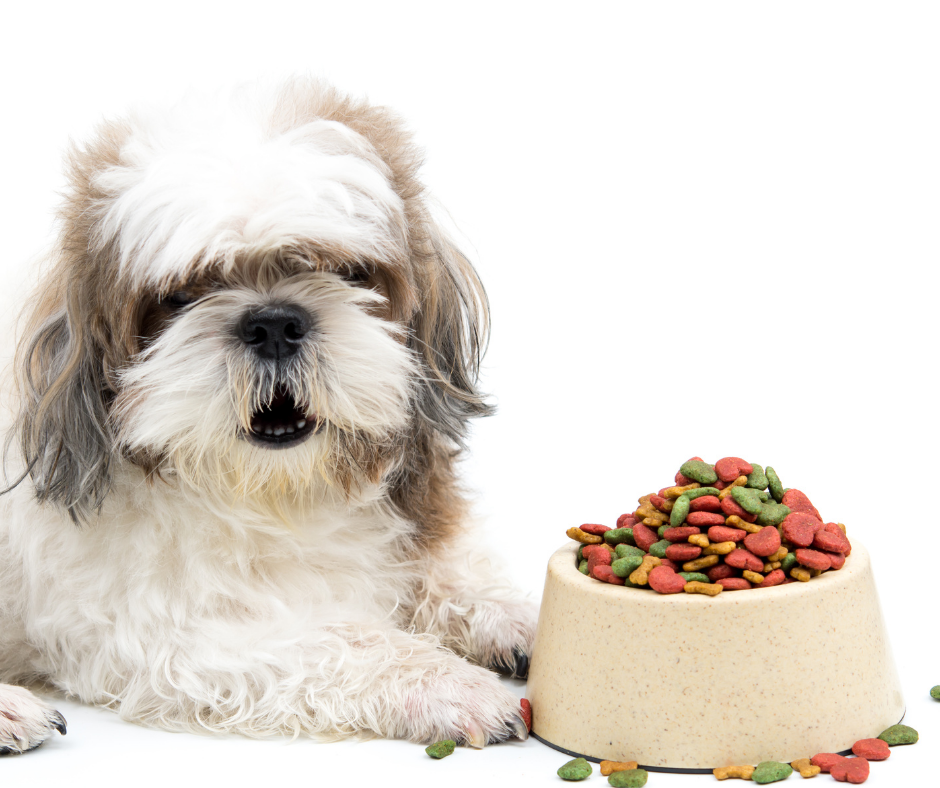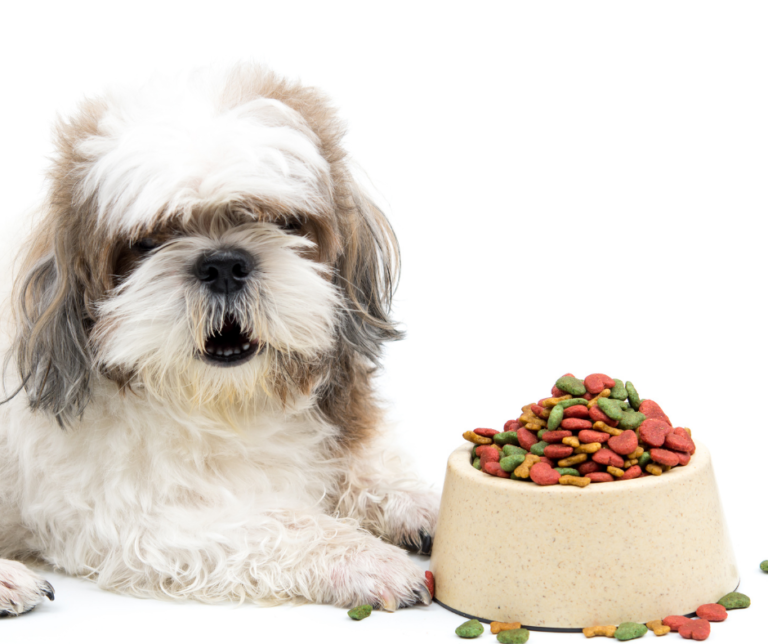Shih Tzus are a type of dog that is known for its small stature, long hair, and their wrinkled face. They are often referred to as “the Chinese lion dog” because they were bred in China. Shih Tzu’s have the reputation of being good family dogs who get along with children and other animals.
However, sometimes this breed of dog may develop, Shih Tzu Upset Stomach problems from eating too many treats or food they shouldn’t be having at all. This blog post will help you understand how to treat your pet when he has an upset stomach problem so that you can keep him healthy!
If you see these symptoms in your pup: vomiting, diarrhea or constipation; then it may be time to have him or her checked by a vet.

What are Some Causes of Shih Tzu Upset Stomach Issues?
Shih Tzu upset stomach problems are not uncommon, but can be frustrating to diagnose and treat. This article will describe the most common symptoms of an upset stomach in Shih Tzus, what could cause them, and how you can go about treating them.
Although Shih Tzu upset stomach problems are not uncommon, there is no one definitive cause. Many different factors could contribute to the problem and it can be difficult to pinpoint the true culprit. Your veterinarian will want to rule out some of these potential causes before diagnosing an upset stomach with a pet Shih Tzu:
- Stomach cancer
- Pancreatitis (pancreas inflammation)
- Gastrointestinal infection or parasite infestation
- Food intolerance or allergy
- Ulcers in the small intestine caused by gastric acid refluxing up from the stomach into the duodenum
Signs of an Upset Stomach in a Shih Tzu
The signs of an upset stomach in a Shih tzu can be very different depending on the cause. For example, if your dog is vomiting due to some type of food allergy or intolerance then it’s likely that they will also have diarrhea as well. If your pup has been eating table scraps and you know what they’ve eaten, then this could be the cause for their upset tummy too!
Causes for Shih Tzu Upset Stomach Problems
The first thing you should know about shih tzu upset stomach problems is that they are not contagious to humans. They can be caused by a number of different things, including eating the wrong food or drinking contaminated water. In this article, we will discuss prevention and treatment for shih tzu upset stomach problems so that your pet doesn’t have to suffer any longer than necessary.

The most common cause of a shih tzu upset stomach is food poisoning. Be sure to avoid feeding your pet raw meat, fish or poultry as these are typically responsible for an animal’s illness. Raw eggs and unpasteurized dairy products should also be avoided. Meat eaters can try adding fresh vegetables and cooked brown rice to their diet every day.
Animals that prefer a vegetarian lifestyle might enjoy the addition of whole grain pasta, soybeans or lentils into their meal plan on occasion too!
How to Treat a Dog with an Upset Stomach Using Home Remedies
If your dog has an upset stomach, there are many different home remedies that you can use to help them feel better. For example, if they have diarrhea or vomiting, you can give them a teaspoon of peanut butter mixed with one tablespoon of honey every hour for up to 24 hours.
If they refuse food and water or don’t want their regular diet, you should take them to the vet as soon as possible! You may also consider giving your dog ginger tea for nausea from motion sickness.
Give them a teaspoon of peanut butter mixed with one tablespoon of honey every hour for up to 24 hours. If they refuse food and water or don’t want their regular diet, take them to the vet as soon as possible! You may also consider giving your dog ginger tea for nausea from motion sickness.
When to Take Your Shih Tzu to the Vet for Their Symptoms of Stomach Upset
When does the upset stomach of your pet need to be checked out by a vet? If you have noticed that your dog or cat is not eating, has diarrhea, or throwing up, then it is time to take them in for an exam. Even if they are still acting like themselves and drinking water but just having some digestive issues, it’s best to go see the veterinarian.
This is because the symptoms of upset stomach in pets are not always caused by a cause that can be fixed at home. There are many diseases and illnesses which affect their gastrointestinal system, such as pancreatitis, which needs to be diagnosed quickly for an appropriate treatment plan to start.
If your pet has been vomiting or having diarrhea but does not seem lethargic, then you may want to wait up to 48 hours before taking them into see a veterinarian. But if they have any other signs like fever, hunched posture, loss of appetite or difficulty breathing; it’s time take them immediately!

Tips for Dealing with An Upset Stomach in Your Pet
When your pet has an upset stomach, it can be difficult to know how best to help them. Pets are not able to communicate with us as well as we would like them to, so we have to rely on our observations and their behavior in order to determine what is wrong. In this blog post, you will learn about some ways that you can provide comfort for your pet when they show signs of an upset stomach.
The most common cause of an upset stomach for a pet is food related. When you are feeding your animal, make sure that they are eating a diet appropriate to their species and life stage with no junk or table scraps mixed in. If the problem persists after you have switched foods, then it may be time to take them to see your veterinarian as there could be something else going on.
Some typical symptoms of an upset stomach include diarrhea, throwing up, loss of appetite and lethargy. However if these signs don’t appear right away, wait for 24-48 hours before taking any action because sometimes pets can go days without having bowel movements or vomiting when they’re sick so don’t become alarmed until at least this amount of time.
Conclusion
Upset stomach problems are one of the most common conditions seen in dogs. Symptoms include vomiting, diarrhea and decreased appetite. In many cases these symptoms can be managed at home with changes to your dog’s diet or medication from a veterinarian if needed.
However there are some circumstances where you should take immediate action such as when it is accompanied by fever, lethargy or bloody stool. If any of these symptoms persist for more than 24 hours then call your vet immediately!








